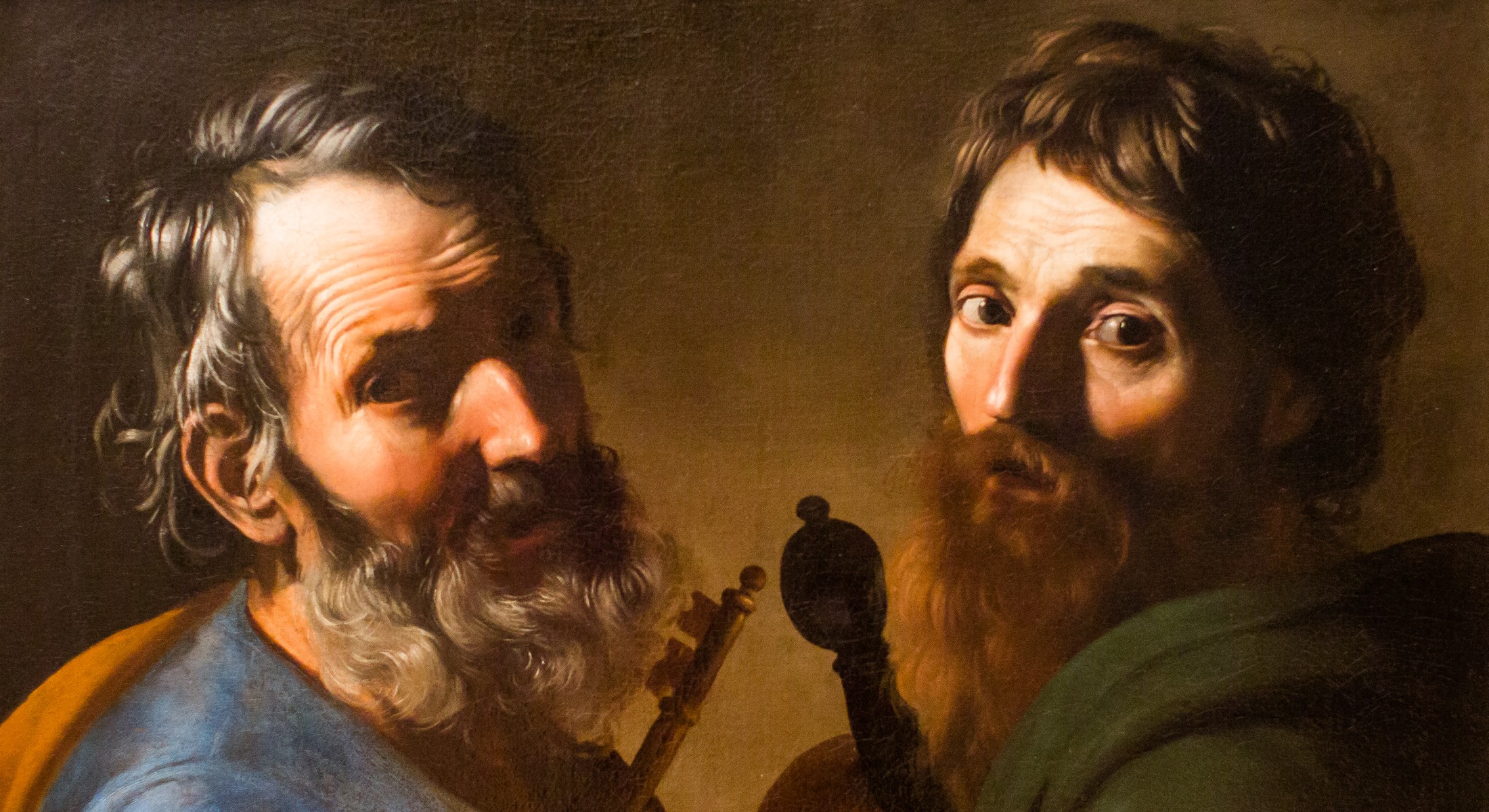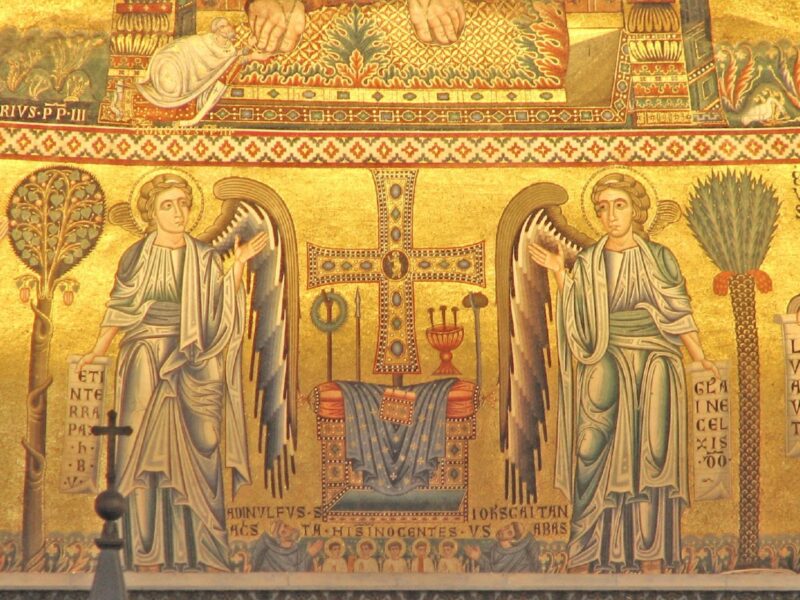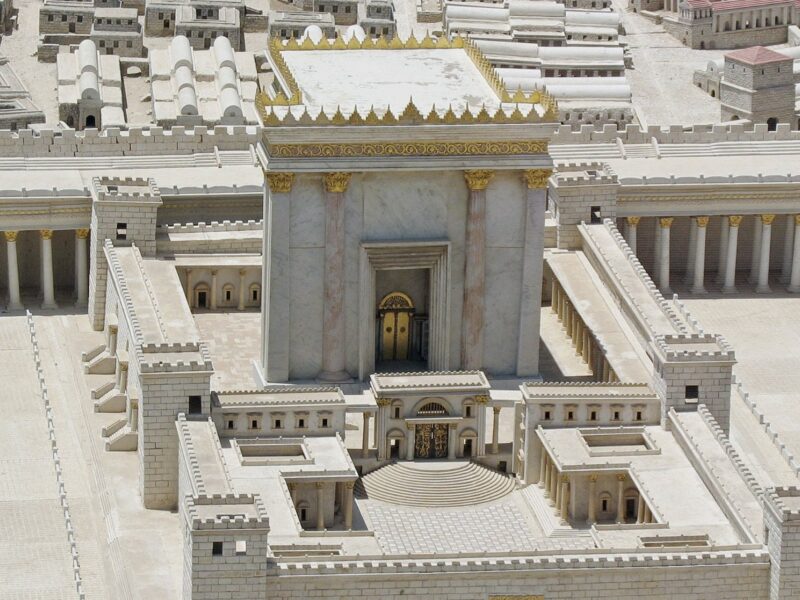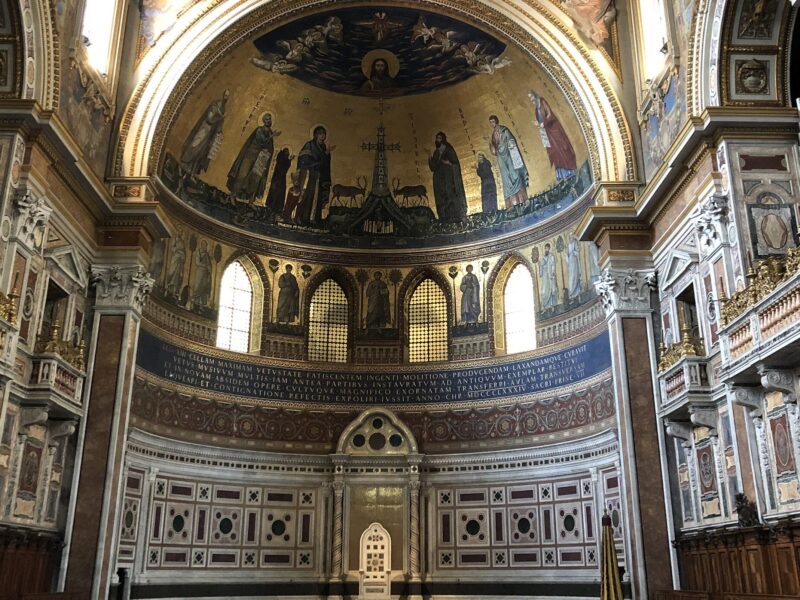
Fuelled By Charity
Solemnity of Saint Peter and Saint Paul. Fr Dominic White considers the ecclesial complementarity of these two great saints.
Cagney and Lacey, Holmes and Watson, Laurel and Hardy. In culture and entertainment, some of the most enduring (and endearing) characters come not alone but in pairs. They are often as different as can be. They may be best friends or (and) rivals. There is at least sometimes tension and conflict between them, but they are complementary and, individually, would not be who they are or achieve what they achieved without the other.
Among the saints, we celebrate together Basil and Gregory (friends), Louis and Zélie Martin (married couple, parents of St Thérèse of Lisieux), and Perpetua and Felicity (fellow martyrs); and though separated separately, Francis and Clare of Assisi, Catherine of Siena and Raymond of Capua, Jordan and Diana, grew holy as friends. And thus Peter and Paul? Certainly saints, but in a strange way, they’re perhaps closer to the duos of culture and entertainment.
Peter, of course, was one of Jesus’ closest friends. Paul, as far as we know, never met Jesus in person, yet had his Damascus Road conversion through seeing Him in a vision. Peter himself was of course no stranger to visions and miracles, as we see in today’s First Reading. And both would be martyrs. Their greater difference was perhaps in temperament. For all his tendency to be impulsive and unreliable (or perhaps because of it), Peter was clearly a figure who valued stability, tradition, solidity. Established by Jesus on the rock of faith, this unreliable man, Simon, would truly become himself, Peter, a rock.
Paul, though, is utterly driven, always on the move. Before his conversion he had been a fundamentalist, driving his particular version of Judaism to a violent extreme, persecuting Christianity as an aberration from Judaism. After his conversion, he is no longer violent, but he is just as zealous, whether on mission and often in danger or imprisoned, or in his soaring theological imagination as he writes, inspired, to the young churches.
Then Peter and Paul clashed. The failure of the first Christians’ mission to bring more than a small minority of their fellow Jews to accept Jesus as the Messiah led them to turn to the Gentiles, with Paul leading the way. It was a big success. But it opened a question. Did the Gentile converts have to keep the Jewish Law, including the circumcision of males? Unity of practice does a lot for community cohesion. But some practices are not essential. While Peter was more inclined to listen to those who advised sticking with tried and tested practice, Paul, in his own words, ‘opposed him to his face because he was wrong’ (Galatians 2:11). He argued that we are not saved by the Law, but by faith in Jesus Christ. So the Church held its very first Council, and having listened carefully to the different contributions, Peter was able to give a judgement which was not a compromise but a consensus of faith. Importantly, it embodied both Paul’s principle of freedom in Christ and the principle of not causing scandal: Gentiles need not keep the Jewish Law. But certain obligations came with this freedom: they must not eat meat which had been sacrificed (because that was implicitly taking part in the sacrifice of another religion); not consume blood (as this would offend the Jewish Christians); nor practise sexual immorality (a rule for everyone, but, the same as today, requiring a break with the pervasive morality of society).
It is not in any way a trial of strength, the unstoppable force versus the immovable object. Both Paul and Peter care about the unity of the Church – Paul pours himself out for the Church, understanding it as body of Christ, starting with his conversion when Jesus asks him, ‘Why are you persecuting me?’ (Acts 9:4). Rather, they are complementary, even if that complementarity had to be realised through conflict. And Paul recalled how they shook hands ‘in fellowship’ (Galatians 2:9), having agreed they had complementary apostolates to the Jews (Peter) and Gentiles (Paul).
Within the Church, they also represent the complementarity of the government of the Church and the lively charisms which spring up among God’s People. Both are guided by the Holy Spirit. The infallibility of the Pope was established when Jesus told Peter, in today’s Gospel:
You are Peter, and upon this rock I will build my Church, and the gates of hell shall not prevail against it. I will give you the keys of the kingdom of heaven, and whatever you bind on earth shall be bound in heaven, and whatever you loose on earth shall be loosed in heaven’ (Mt 16:18-19).
Over the centuries, through highs and low, conflicts and trials, the Holy Spirit has guided the Church to understand this passage of Scripture as a teaching on the infallibility of the Pope, so that:
The Roman Pontiff, head of the college of bishops, enjoys this infallibility in virtue of his office, when, as supreme pastor and teacher of all the faithful who confirms his brethren in the faith he proclaims by a definitive act a doctrine pertaining to faith or morals (Lumen Gentium, 25).
So this doesn’t include Pope Leo’s opinion about the weather! But it is a beautiful grace of the Holy Spirit flowing from Christ’s faithful love for His Bride, the Church, being with her always, to the end of time, so that Christians may truly be one.
And charisms – gifts of the Holy Spirit, are enumerated by Paul, e.g. in Romans 12: prophecy, teaching, encouragement, almsgiving, acts of mercy – we see around us, and often they give rise to new communities and movements in the Church, to serve the Church and the world in new ways. St Peter himself affirms that each person has their own charism from the Holy Spirit (1 Peter 4:10 – so ask God to show you yours!). As Pope Pius XII says, the hierarchy and the charisms of the Church are not opposed to each other, but rather are complementary.
In practice we can experience them as conflicting, but a very good way each of us can help overcome that conflict is to avoid the secular silo mentality of labelling others and assuming that difference must be wrong. At the same time, any individual or group can fall into heresy, usually without intending to. However inspired we feel, we must be open to correction. The wonderful things about the argument between Peter and Paul is that their argument was fuelled by charity and therefore orientated to unity. A glorious unity in diversity, of two people as different as it’s possible to be. So there’s room in the Church for all of us, and for us all to be one.
Readings: Acts 12:1-11 | 2 Timothy 4:6-8,17-18 | Matthew 16:13-19
Image: detail from Santi Pietro e Paolo by Bartolomeo Manfredi, via Thomas Hawk (CC BY-NC 2.0)


